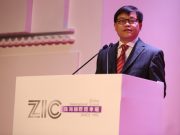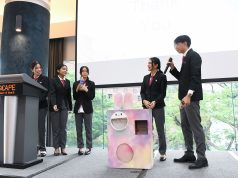Singapore, 5 Mar 2018 – Employers will find it easier to get financial help for trying out flexible work arrangements from July this year, as part of a government bid to better help women achieve both career and family aspirations.
A scheme that funds companies so that they can help groups such as mothers get back to work will be enhanced and extended beyond its expiry date this month, said Second Minister for Manpower Josephine Teo yesterday.
“Women should not have to choose between full-time work and zero-time. To help companies provide more working options in between, I am happy to announce that we will extend and enhance the Work-Life Grant, which is due to expire in March 2018,” she said in Mandarin at an International Women’s Day event organised by the Singapore Chinese Chamber of Commerce and Industry.
The WorkPro Work-Life Grant was rolled out in 2013, and has since been tapped by more than 1,500 companies that collectively employ more than 100,000 employees.
Funding from the $30 million enhanced grant, which will span two years, can be used for expenses such as creating infrastructure for a virtual private network so that employees can work from home, among other things.
Three changes will be made to the grant scheme after feedback was taken from firms, Mrs Teo said.
First, employers will find it easier to qualify for the grant. Instead of requiring at least 20 per cent of all employees to be on flexible work arrangements, the enhanced scheme requires each company to have just one employee working on such an arrangement.
Second, the quantum of the Work-Life Grant will be increased per employee, said Mrs Teo. Currently, employers are funded to the tune of $2,000 per employee over a year for the first five employees, and $1,500 for the subsequent 20. But the enhanced grant will fund employers $2,000 per employee over two years, up to 35 employees.
Finally, one form of a flexible work arrangement is job sharing, which entails the handover of work from one employee to another. The Government recognises that it is harder for employers to make such arrangements for professional, managerial, executive and technician jobs, said Mrs Teo.
To make this a more attractive option, the enhanced Work-Life Grant will provide a higher incentive of $3,500 per employee, instead of the current $2,000, she said.
“The higher grant per employee on flexible work arrangements, including job sharing, will provide more upfront support to help employers take the first step to encourage their employees to adopt flexible work arrangements,” said Mrs Teo, urging employers to play their part and continue sustaining the adoption of such arrangements.
ST





































